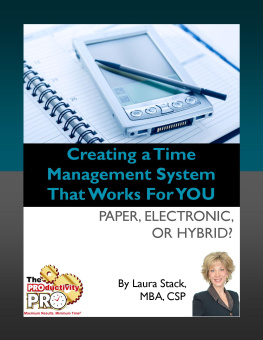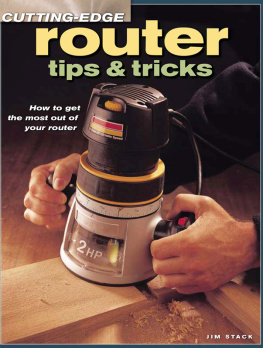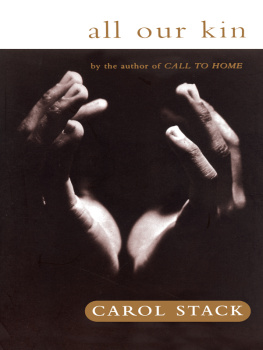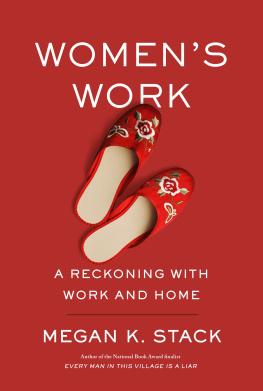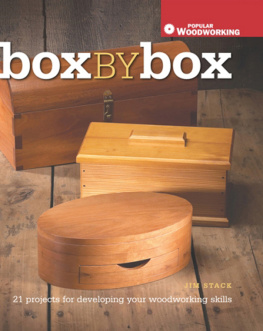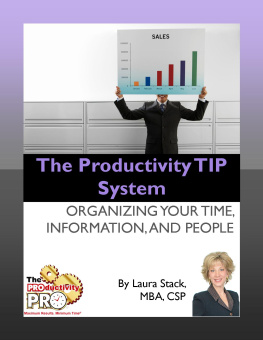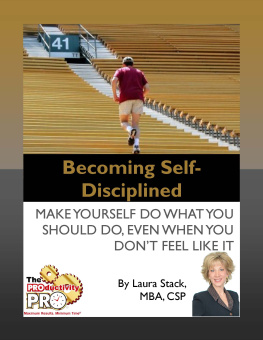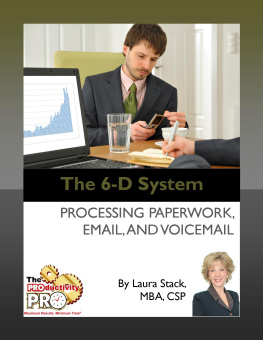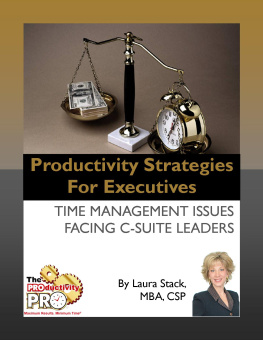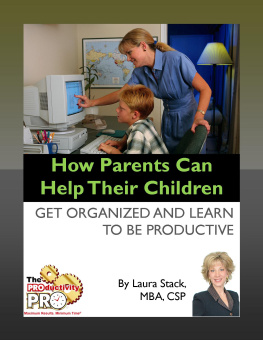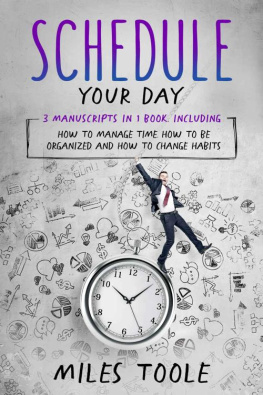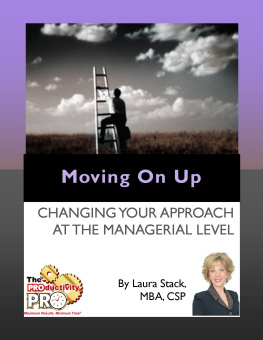Tableof Contents
Creating a TimeManagement System That Works for You
Introduction
When I first started college in the late 1980s, I attendedmy first time management course, and the instructor told us to write down ourschedules for the entire day including the specific time that we would workon each task. I dutifully wrote up-to-the-minute agendas detailing what I woulddo that day. From 8:00 to 8:30, Ill do this task. From 8:30 to 9:10, Ill do that task.
At that time, I could pretty much keep up with it. The daysusually went as planned. When something unexpected arose, it was fairly easyto adjust my plan. Then, however, things started to change. Technologyexploded! Voicemail, e-mail and the Internet entered the picture, and theProductivity Game changed forever. Today, if you attempt to write out everyminute of your day, your schedule would blow up in the first five minutes. Youcould spend more time revising your plan than simply doing your work.
Indeed, its become harder to be productive for all of thesereasons. Were busier than ever before. We have more to do with fewerresources, and less time to do it. Were more disorganized than ever before,as we receive information from multiple sources and have more data to track andorganize. Were constantly communicating with more people, more quickly,through more media. The result is that we have more conversations to recall.
Being productive today requires many different competencies,two of which are managing your time and being organized. If you excel in beingproductive, you have systems. You dont just have piles of papers and piles offiles. When youre truly organized, you can find what you want when you wantit in 30 seconds or less.
Being organized means controlling the paper, the e-mail, thereading material and the inputs into and out of your office and your life. Organization is your ability to sort, filter and process all types ofinformation effectively. Its how tidy your office and your home look, insideand out. Its how in-control you look and feel, inside and out. Beingorganized will give you more control over your life and your time. You MUSTfind the time and the self-control to achieve organization through propersystems.
Organizing your life is complicated by the fact that everyoneuses a different system: everyone has a different personality, and everyonefaces different work situations that are conducive to different methods. Indeed, theres no one correct or one-size-fits-all method of organizing. Someof it depends on your preferences, some of it depends on your job, and some ofit depends on whether you travel or on the availability of technology. Yourchoice to use paper-based systems, electronic systems, or some hybrid methodcombining these two systems will depend on several factors.
Assessment
Lets begin with an assessment to better determine where youlie on the paper-to-electronic continuum. Grab a piece of paper and a penciland really think through the following 18 questions. Answer Yes or No to each:
Do you work primarily at a fixed office desk during the day?
If you do, you might haveaccess to your computer more frequently. If you dont, its not going to be aseasy if youre leaving your computer on the desk when you need to looksomething up.
Are you constantly on the go?
If so, you might needsomething portable that you can take with you easily, so you can always gainaccess to your information.
Do you print your e-mail?
If you print your e-mail,thats a sign that maybe you like paper and, hence, you may prefer papermethodologies for organization.
Do you enjoy using calendaring software, such as e-mail, on yourcomputer?
Some people actually likeMicrosoftOutlook,Novell GroupWise,or IBM LotusNotes,and similar organizing methods.
Do you take lots of notes in meetings and on the phone?
If you do, you probably grab apad of paper and a pencil. Its very difficult to capture information likethat with a BlackBerrydevice when youre in a meeting and you have to take extensive notes. Mostpeople still default to paper and pencil.
Do you need a relatively inexpensive time management system?
BlackBerrys, iPhones, and otherhandhelds can be quite pricy versus traditional paper planners.
Do you need the ability to immediately glance at your completemonthly calendar?
I like my handheld becauseits great for reference information, but I dont like having to click on thelittle squares each month just to see what my calendar is. I like being ableto open my paper planner and see at a glance what my month looks like.
Do you track your friends and relatives names, addresses andphone numbers on a computer, or do you use paper?
Or do you use some combinationof the two, like I do?
Does your work require quick access to hundreds or thousands ofnames, phone numbers and addresses?
In this case, a paper plannermight not be the best method to organize that. Can you image trying to keepall of that information on paper?
Do youneed to be able to access your e-mail while travelling?
If you travel and are a roadwarrior, theres hardly a replacement for a handheld device. Its oftendifficult to get out your laptop, if youre lucky enough to have an air card,and check your e-mail. Alternately, you might have to wait to get to yourhotel so you can have wireless access. It sure is nice to keep up with it witha BlackBerry.
Do youtravel infrequently?
If so, this likely isnt atechnology you require, because most of your work, Monday through Friday, is ina traditional office or in a home office where youre sitting at a desk.
Doesdouble entry feel like a waste of time?
In other words, if you get anappointment on Microsoft Outlook and you accept the invitation and it goes intoyour Outlook software, do you then write it on a paper planner? Because, afterall, in the paper planner is also the rest of your life Yoga class andPick kids up at school. Does this seem like a waste of time to you? Or doyou like to have that paper planner to take back home with all the informationin one place?
Are youcomfortable having no backup system if you lose it?
If you have an electronichandheld and you drop it, you can get a new handheld and your information willbe available. However, if you lose your paper planner, theres no replacingit. You always have the option to go through your electronic calendar and tryto re-enter the data. However, some of the lists and information that you havein writing are not necessarily replaceable. Its always a good ideato have your contact information in the front of your paper planner.
Do youdislike writing to-do lists?
I personally love to writeto-do lists. When I think of something I need to do, my first instinct is tograb a pencil. Other people go to the computer and perhaps use an electronicfeature, a to-do list thats either internet-based or software-based, such asTasksTM, because of the fact that those tasks roll over to the nextday automatically. I actually enjoy the discipline of rewriting my daily to-dolist each day so that I can re-focus, re-schedule, and re-prioritize as my lifechanges.
Do you runout of room to write your to-do lists?
If youre the type who justhas one big master list with a 117 things on it, you may need to rethink howyoure making your list.
Do youcarry papers around with you to meetings?
If youre a paper person andyou like being able to reference and refer to items, and you carry a stack homewith you in your briefcase, this is a signal that you may be inclined towardsmore paper methodologies - because electronic people really try to gopaperless. It gives them the shivers when they hit the Print button.

